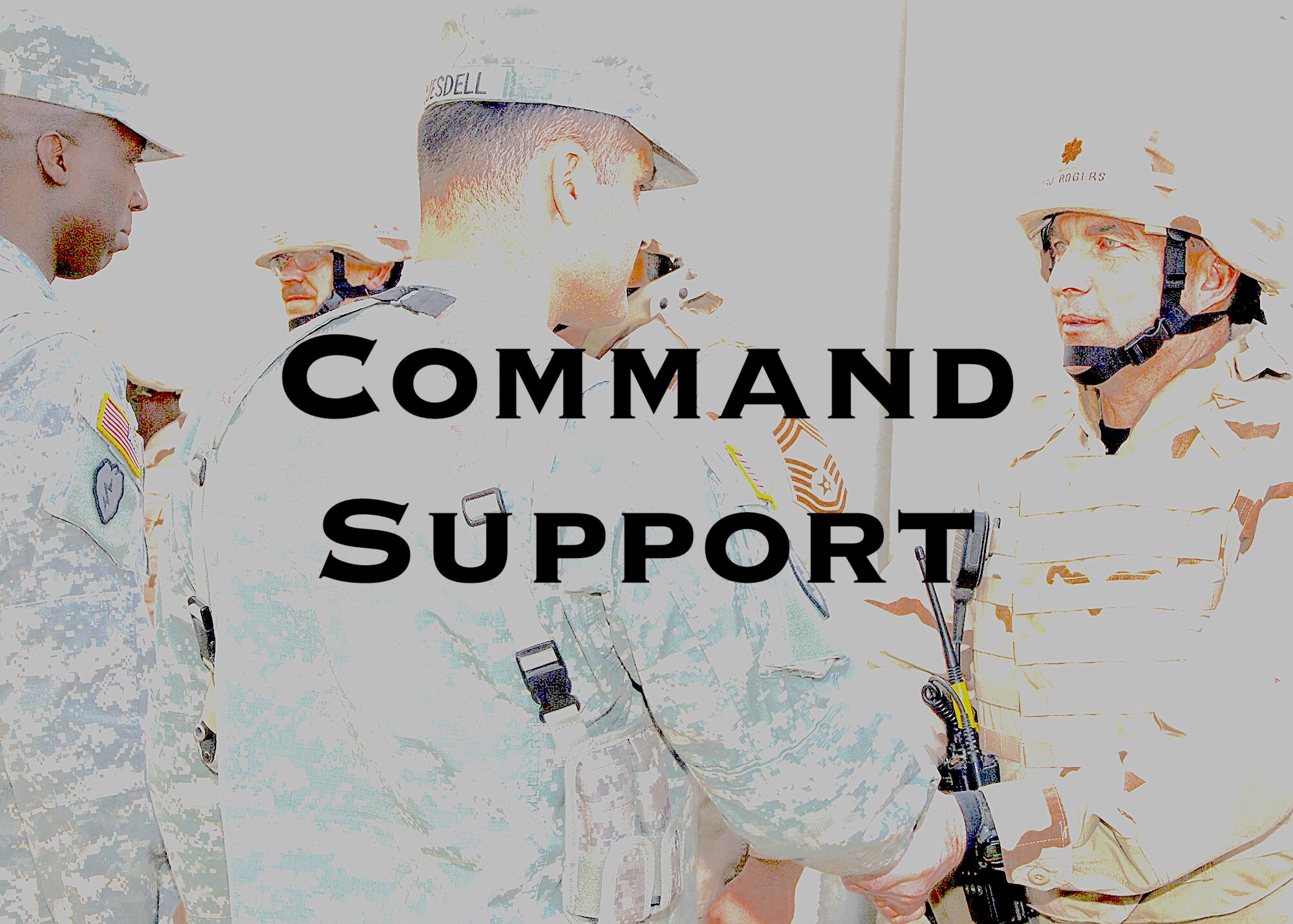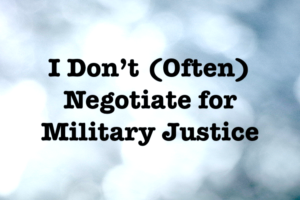
I frequently encounter this question from servicemembers after they learn that court-martial charges are coming, and it usually comes with a fair amount of frustration. To answer the question, it is important to understand a few things.
First of all, it is important to understand who we mean when we say, “the command.” For the typical military service member, and especially for junior enlisted, the company-level command is their entire world. That O-3 commander typically has 5-10 years as a commissioned officer and limited UCMJ authority. While junior personnel might see that commander as “the command,” the reality is that company-grade commander is only the bottom rung in a tall ladder, running up to actual convening authorities. Usually, the decision of whether to prosecute a case through court-martial happens much higher up. By law, is the first O-6 commander who must decide how to dispose of allegations of sexual assault, and in practice most serious allegations are handled similarly.
Secondly, it is important to remember that commanders often say what they think they should say, or what they have been advised to say, or even what they believe will keep you the least likely to be a risk for self-harm. Those comments of positive support may not mean what you think they mean. For example, it is common for a first-line commanders to tell accused servicemembers that they “support” that servicemember. Often, this “support” really means emotional or moral support for the servicemember during the court-martial process, and not actual support against prosecution.
Finally, one must understand the significance of legal advice provided by Judge Advocates to your commander. At various points, a judge advocate will update and advise commanders about military justice actions, each of which include significant resources and efforts. In addition to specific legal guidance, these closed-door conversations can also subtly convey the opinions held at higher levels of command. So, while your commander may express “support” early on, their opinions and positions may change after receiving advice (accompanied by an evidence packet) from a Judge Advocate. Understanding the process and the dynamic for company-level leadership is critical to defending servicemembers, which is one of the reasons why it pays to hire a firm that specializes in this practice.
This uncertainty and mixed messaging can be extremely frustrating for individual servicemembers. Indeed, it often feels like a rollercoaster, and often when facing investigation, you may be looking for positive indications from any potential source. Add in the reality that the command has no obligation to share any details of its plans or even make a decision in any certain amount of time, and it can be downright demoralizing.
This early phase of a case is one where civilian defense counsel can be uniquely helpful. While AR 27-10 limits the Army’s uniformed defense lawyers to providing only suspect rights advice (which amounts to “keep your mouth shut, don’t speak to the police, and come back when you get paperwork”), civilian defense counsel can actually represent you and make a difference on the front end—something we have done time and time again.
Military justice actions are a lot like a freight train: slow moving in the beginning, but almost impossible to stop once they gain speed. Nothing makes us happier than being able to resolve a matter before the “train leaves the station.” We strongly encourage any servicemember who believes that they may be facing criminal charges to contact a qualified military defense attorney as early as possible.
You Might Also Like These Articles

I hate negotiating with the government. I do. I really, really do. I don’t (often) negotiate with the government to…
Read More
Like so many of you, I am deeply troubled by violence our children and educators are being forced to endure,…
Read More
I return often to the idea of finding my joy. I have had many humbling experiences not so long ago…
Read More



 REQUEST A CONSULTATION
REQUEST A CONSULTATION 